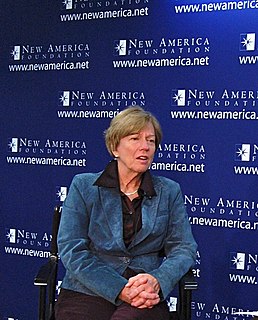A Quote by Nina Fedoroff
Jumping genes are fundamental because they're agents of change. Everybody knows that organisms evolve. What makes them evolve is that their genes are dynamic and in motion. A familiar example is the stripe-y corn - called Indian corn - that you buy in the fall.
Related Quotes
Complex organisms cannot be construed as the sum of their genes, nor do genes alone build particular items of anatomy or behavior by themselves. Most genes influence several aspects of anatomy and behavior as they operate through complex interactions with other genes and their products, and with environmental factors both within and outside the developing organism. We fall into a deep error, not just a harmful oversimplification, when we speak of genes "for" particular items of anatomy or behavior.
Epigenetics doesn't change the genetic code, it changes how that's read. Perfectly normal genes can result in cancer or death. Vice-versa, in the right environment, mutant genes won't be expressed. Genes are equivalent to blueprints; epigenetics is the contractor. They change the assembly, the structure.
Cheetah genes cooperate with cheetah genes but not with camel genes, and vice versa. This is not because cheetah genes, even in the most poetic sense, see any virtue in the preservation of the cheetah species. They are not working to save the cheetah from extinction like some molecular World Wildlife Fund.
You know they call corn-on-the-cob, "corn-on-the-cob", but that's how it comes out of the ground. They should just call it corn, and every other type of corn, corn-off-the-cob. It's not like if someone cut off my arm they would call it "Mitch", but then re-attached it, and call it "Mitch-all-together".
Individuals are not stable things, they are fleeting. Chromosomes too are shuffled into oblivion, like hands of cards soon after they are dealt. But the cards themselves survive the shuffling. The cards are the genes. The genes are not destroyed by crossing-over, they merely change partners and march on. Of course they march on. That is their business. They are the replicators and we are their survival machines. When we have served our purpose we are cast aside. But genes are denizens of geological time: genes are forever.
Yes, genes are important for understanding our behavior. Incredibly important - after all, they code for every protein pertinent to brain function, endocrinology, etc., etc. But the regulation of genes is often more interesting than the genes themselves, and it's the environment that regulates genes.
We're going to move from a commodity economy where you basically grow the same kind of crops - where a kernel of corn is a kernel of corn is a kernel of corn - to an ingredient economy where there will be a kernel of corn that will be designed for fuel, there will be a kernel of corn designed for livestock.
Every New Englander might easily raise all his own breadstuffs in this land of rye and Indian corn, and not depend on distant andfluctuating markets for them. Yet so far are we from simplicity and independence that, in Concord, fresh and sweet meal is rarely sold in the shops, and hominy and corn in a still coarser form are hardly used by any.































